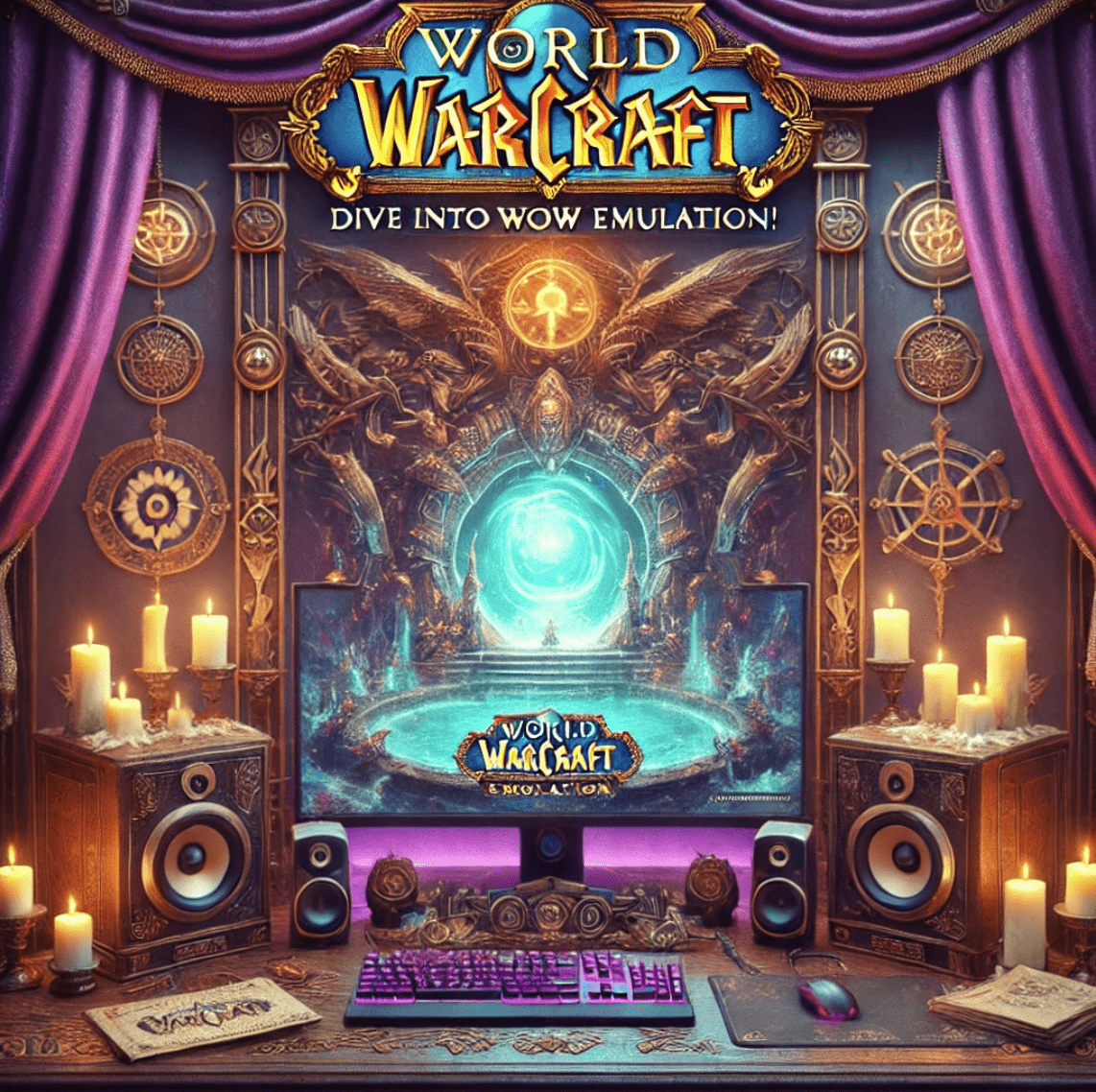Emulators for World of Warcraft
Software applications designed to emulate the popular MMORPG World of Warcraft (WoW) allow players to create and manage their own private gaming environments. These tools replicate the functionality of official game servers, enabling a unique twist on the traditional gameplay experience. Often developed as open-source projects, these emulators provide extensive customization options, allowing players to tailor their gaming experience to their preferences.

How Emulation Works in WoW
The process of replicating the WoW experience involves several critical components:
- Core Server Software: This is the backbone of the emulator, responsible for managing game logic, player interactions, and the virtual world.
- Database Management: A vital element that stores all game-related data, including quests, items, and character profiles.
- Client Application: The software players use to connect to the server, facilitating communication and gameplay.
When players connect to a private server, their client communicates with the server, which processes requests and sends back the necessary information to create an immersive gaming experience.
Popular Emulators and Their Features
Here’s a look at some of the most widely used emulators in the WoW community, along with their standout features:
| Emulator |
Game Version |
Language |
Advantages |
Disadvantages |
| The Alpha Project |
0.5.3 Alpha |
Python |
Historical preservation, compatible with original 0.5.3 client, cross-platform support (non-x86 platforms) |
Limited features, underdeveloped scripts, and waypoints, small community |
| VMaNGOS |
1.2 to 1.12 Vanilla |
C++ |
Stable, well-documented, active development, large community support |
Limited to Vanilla WoW, slower development for non-vanilla features |
| cMaNGOS |
1.12 Vanilla, 2.4.3 TBC, 3.3.5 WotLK |
C++ |
Supports multiple expansions, strong community, good documentation |
Somewhat complex setup, may require more resources for optimal performance |
| MangosSharp |
1.12 Vanilla |
C# |
Written in C#, easier for developers familiar with C#, good for learning |
Less community support, fewer updates, limited to Vanilla WoW |
| AscEmu |
1.12 Vanilla, 2.4.3 TBC, 3.3.5 WotLK, 4.3.4 Cata, 5.4.8 MoP |
C++ |
Supports multiple expansions, customizable, good for private servers |
Can be buggy, requires frequent updates and patches, smaller community |
| AzerothCore |
3.3.5 WotLK |
C++ |
Modular system for customizations, strong community, active development, stable for production servers |
Limited to WotLK, setup can be complex for beginners, not suitable for Classic or TBC servers |
| The Cataclysm Preservation Project |
4.3.4 Cata |
C++ |
Focused on preserving Cataclysm, dedicated community, detailed documentation |
Limited to Cataclysm, smaller community compared to broader version emulators |
| SkyFire Project |
5.4.8 MoP |
C++ |
Supports Mists of Pandaria, active development, good community support |
Only supports MoP, may have stability issues, complex setup |
| TrinityCore |
3.3.5 WotLK, 10.1.7 Dragonflight |
C++ |
Highly popular, large community, supports latest WoW versions, well-documented |
Complex setup, resource-intensive, steep learning curve |
| CypherCore |
10.1.7 Dragonflight |
C# |
Supports the latest WoW version, written in C# for .NET developers, active development |
Smaller community, fewer resources and documentation, limited historical version support |
Legal Considerations for Private Servers
While engaging with unofficial servers can be enticing, it’s essential to understand the legal landscape:
- Copyright Issues: Blizzard Entertainment retains copyright over the game and its assets. Operating a private server may infringe on these rights.
- Terms of Service Violations: Most private servers violate Blizzard's Terms of Service, which could lead to account bans or legal repercussions.
- Reverse Engineering Concerns: Many emulators rely on reverse engineering the game client, which can also pose legal challenges.
Players should weigh these risks carefully and consider the potential consequences before joining private gaming communities.
Conclusion
Emulators for World of Warcraft provide players with the opportunity to explore the game in new ways, offering unique experiences that differ from the official servers. However, it’s crucial to navigate the legal implications and choose wisely. Whether you seek nostalgia or a fresh perspective, there’s likely a private server that aligns with your gaming preferences.
Contact the Author
Gtop Admin
Lund, Skåne, Sweden
[email protected]
Note: This article has been peer-reviewed and held to the highest editorial standards.
We spent 148 hours researching and testing over 16 days to bring this article to you.